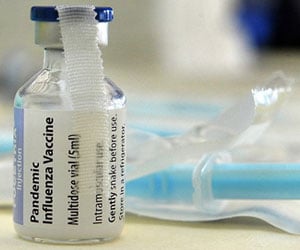
‘World Health Organisation Air Quality Guidelines and standards should be strictly followed. Countries with a recent drastic increase in air pollution should pay more attention to control small airborne particles.’
Read More..Tweet it Now
Associate Professor Yuming Guo from Monash University's School of Public Health and Preventive Medicine in Australia, said as there's no threshold for the association between particulate matter (PM) and mortality, even low levels of air pollution can increase the risk of death. Read More..
"The adverse health effects of short-term exposure to air pollution have been well documented, and known to raise public health concerns of its toxicity and widespread exposure," Professor Guo said.
"The smaller the airborne particles, the more easily they can penetrate deep into the lungs and absorb more toxic components causing death.
"Though concentrations of air pollution in Australia are lower than in other countries, the study found that Australians are more sensitive to particulate matter air pollution and cannot effectively resist its adverse impacts. This may be attributed to Australians' physiological functions having adapted to living in areas with low levels of particulate matter air pollution.
"Given the extensive evidence on their health impacts, PM10 and PM2.5 are regulated through the World Health Organisation (WHO) Air Quality Guidelines and standards in major countries, however Australians should pay more attention to the sudden increase in air pollution," Professor Guo said.
Advertisement
Source-Eurekalert







